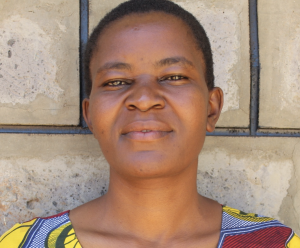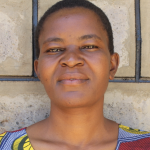The students of Kaptik Primary School spend many hours each day at school. Because of the large school population of 997 students and 19 teachers, several water sources are needed, including many trips to the local spring for the students and staff to have sufficient water to make it through the day.
The older students come to school very early in the morning and immediately begin studying. At 7 am, they have a break; however, not to rest, but to rush to the local spring to collect water for the school day. Sadly, the spring is not a safe, reliable water source, as it is open to contamination. When the younger students arrive, they begin cleaning until the bell rings at 8 am, when the entire school assembles and officially begins their day.
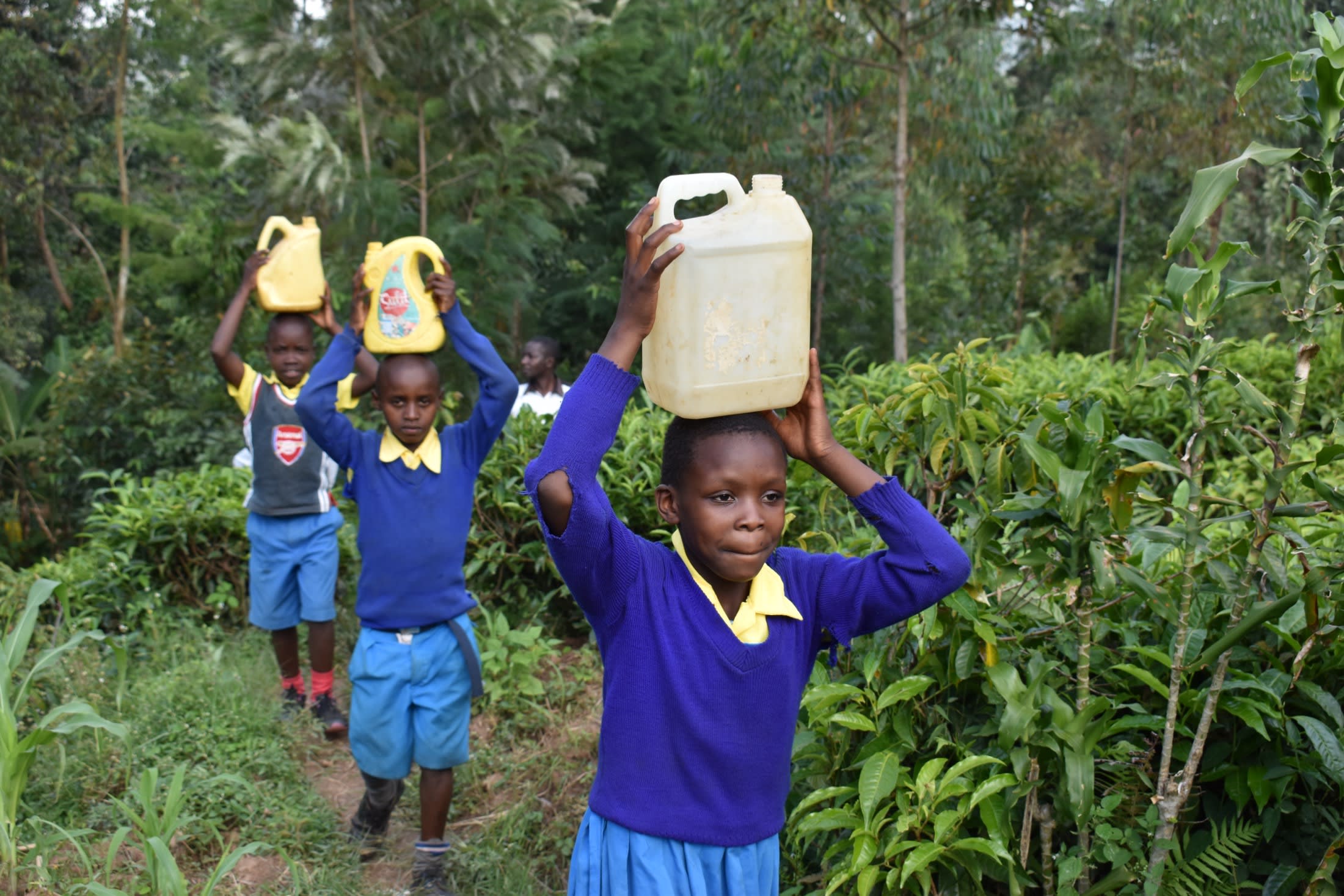
There is a rainwater tank (30,000L) on the campus, but alone it can not possibly hold enough water to meet the needs of the growing student population. When the tank fills with rainwater, it is unsafe to drink and likely a source of diseases since it has not been properly cleaned since its installation.
The only other alternative is students hauling water from home, which is a tiring and laborious task. It is also dangerous since students collect water from unknown sources and transport it in unclean containers.
The students and staff must make use of the water they can find, but not without significant costs.
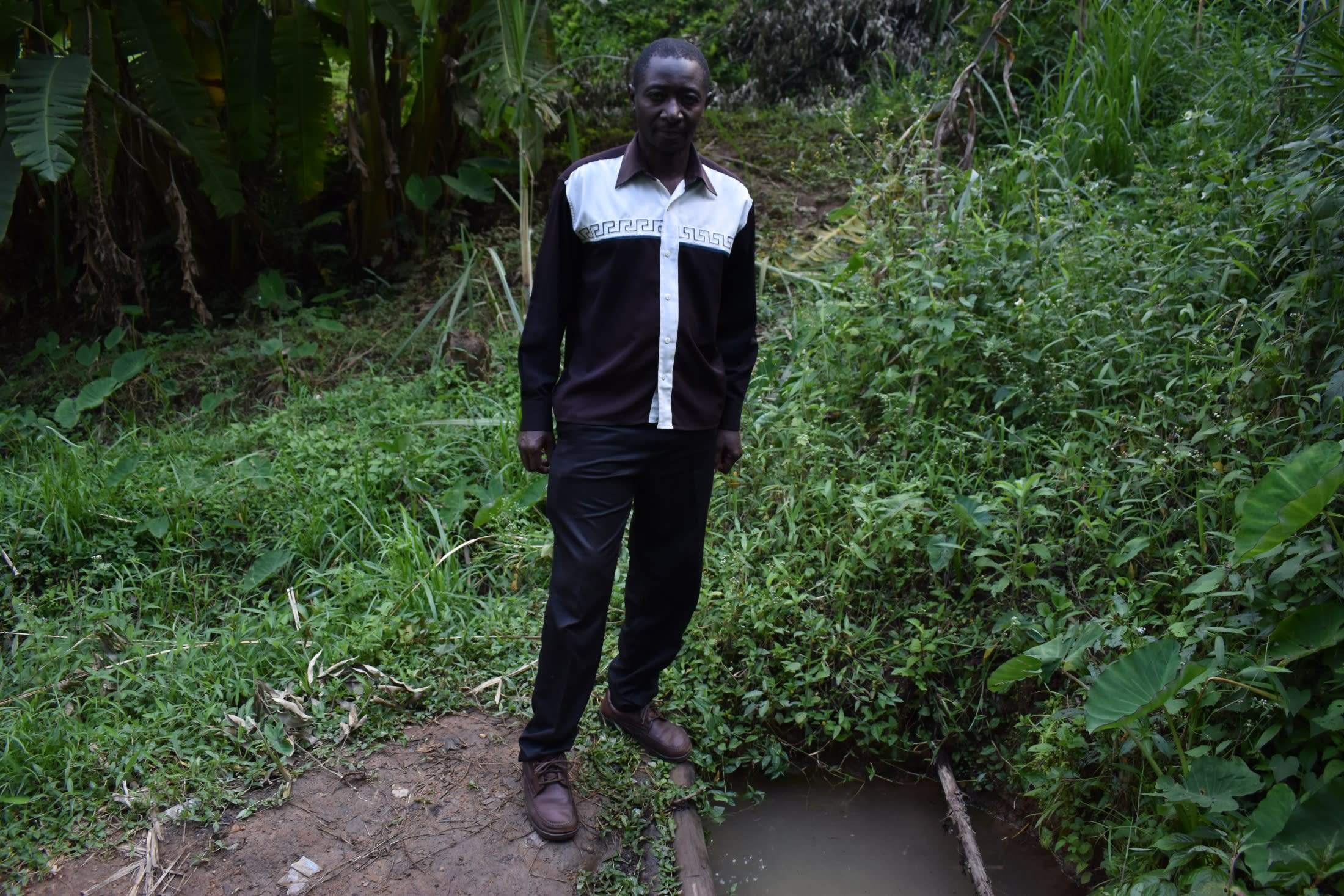
"The current water situation has really affected me because since I started using water from school, I have had chronic typhoid and amoeba, which is so expensive to treat. All [of] my salary is diverted to medication, and my family are really suffering," said teacher Patrick Lung'aho, 45.
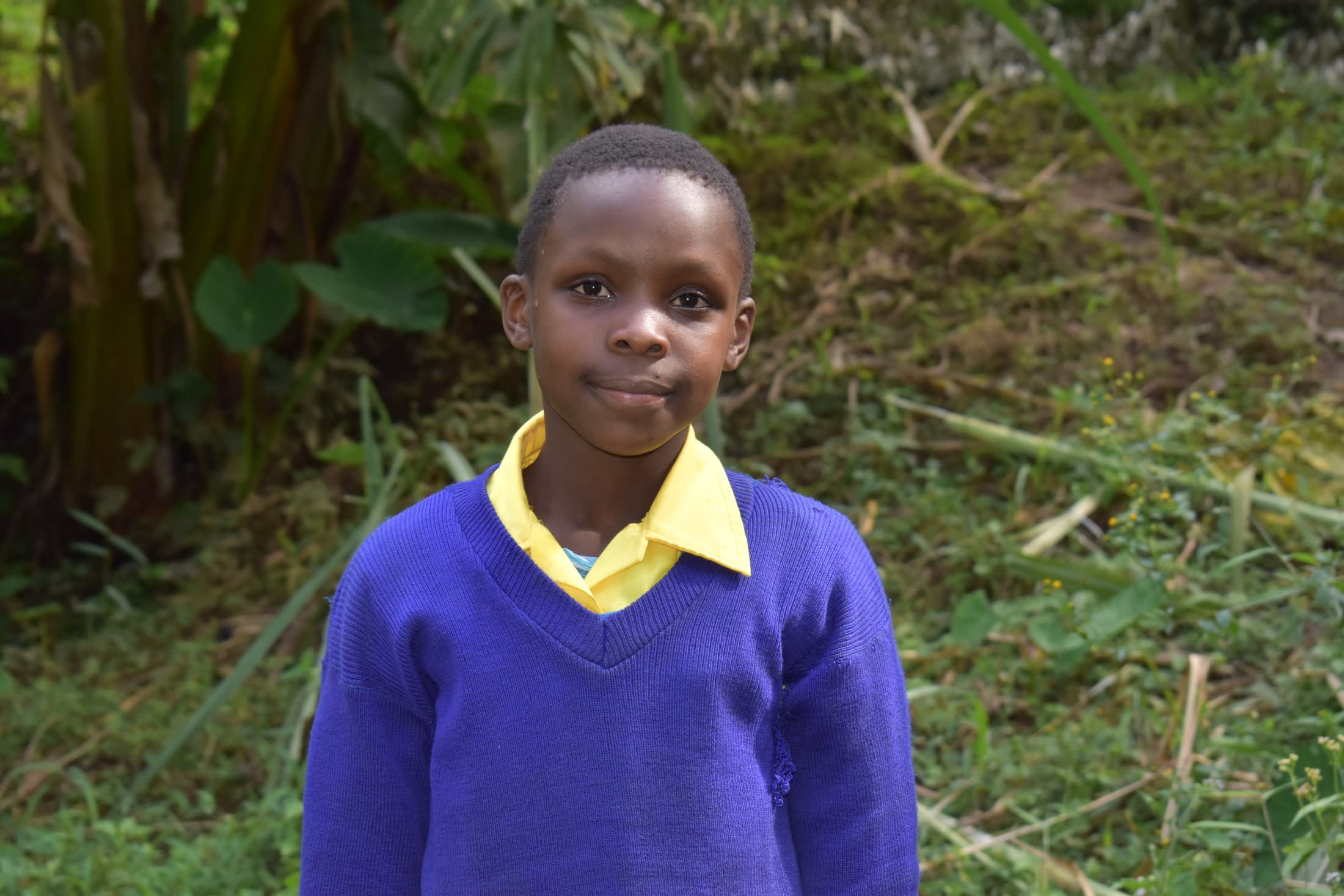
"[I] am not able to attend classes because [I] am weak and hospitalized. This has affected me and my parents because any amount they get goes to my medication. My education has been interfered with [and I] am not able to catch up with my fellow students," said 9-year-old Shantel V.
The students and staff of Kaptik Primary School are anxiously awaiting the new well project so everyone's health can benefit and they can all get back to learning.
What We Can Do:
New Well
We conducted a hydrogeological survey at this school and the results indicated the water table beneath it is an ideal candidate for a borehole well. Due to a borehole well's unique ability to tap into a safe, year-round water column, it will be poised to serve all of the water needs for this school's large population, even through the dry months.
The school will help collect the needed construction materials such as sand, rocks, and water for mixing cement. They will also provide housing and meals for the work team, in addition to providing local laborers. We will complement their materials by providing an expert team of artisans and drilling professionals, tools, hardware, and the hand-pump. Once finished, water from the well will then be used by the school's students and staff for drinking, handwashing, cooking, cleaning, and much more.
Handwashing Stations
There is currently nowhere for students to wash their hands after using the latrines or before eating lunch, let alone the water to do so.
The student health club will oversee the two new handwashing stations we will provide, and make sure they are kept clean and in working condition. The club leaders will fill the handwashing stations with water daily and make sure they are always supplied with a cleaning agent such as soap or ash.
VIP Latrines
We will construct two triple-door latrine blocks using local materials that the school will help gather. Three doors will serve the girls and three doors will serve the boys. All of these new latrines will have cement floors that are designed to be easy to use and to clean. And with a borehole right on school property, there should be enough water to keep them clean.
Training on Health, Hygiene, COVID-19, and More
We will hold a one-day intensive training session with students, teachers, and parents. This training will cover a wide range of topics including COVID-19 symptoms, transmission routes, and prevention; personal and environmental hygiene; and the operation and maintenance of the borehole, latrines, and handwashing stations. There will be a special emphasis on handwashing.
Our team of facilitators will use a variety of methods to train, including participatory hygiene and sanitation transformation, and asset-based community development. We will initiate a student health club, which will prepare students to lead other pupils into healthy habits at school and at home. We will also lead lectures, group discussions, and provide illustrative handouts to teach health topics and ways to promote good hygiene practices within the school including handwashing and water treatment. We will then conduct a series of follow-up trainings before transitioning to our regularly scheduled support visits throughout the year.
We and the school strongly believe that all of these components will work together to improve standards at this school, which will help lead to better student academic performance and will help unlock the opportunity for these students to live better, healthier lives.

 Borehole Well and Hand Pump
Borehole Well and Hand Pump
 Rehabilitation Project
Rehabilitation Project












